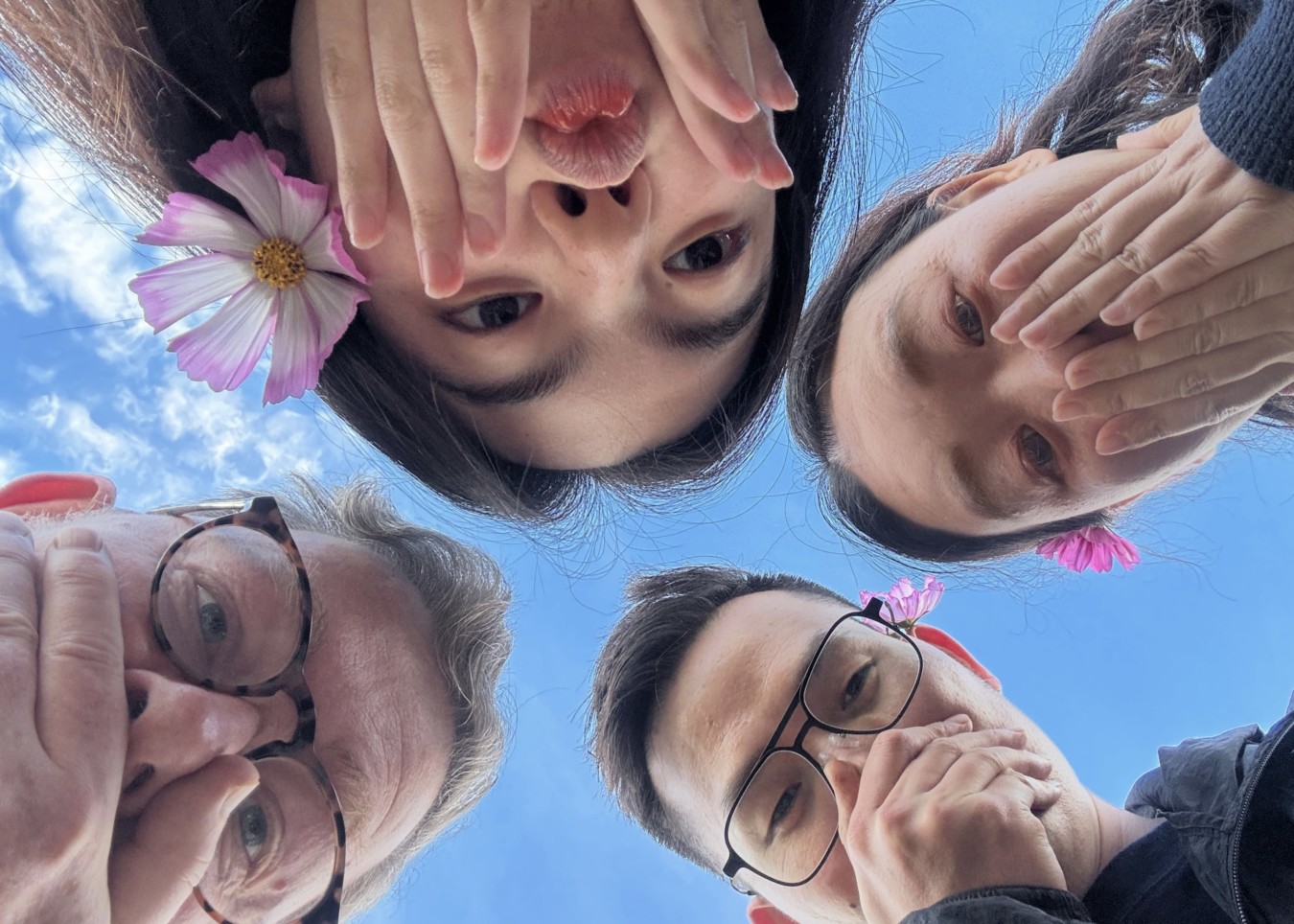
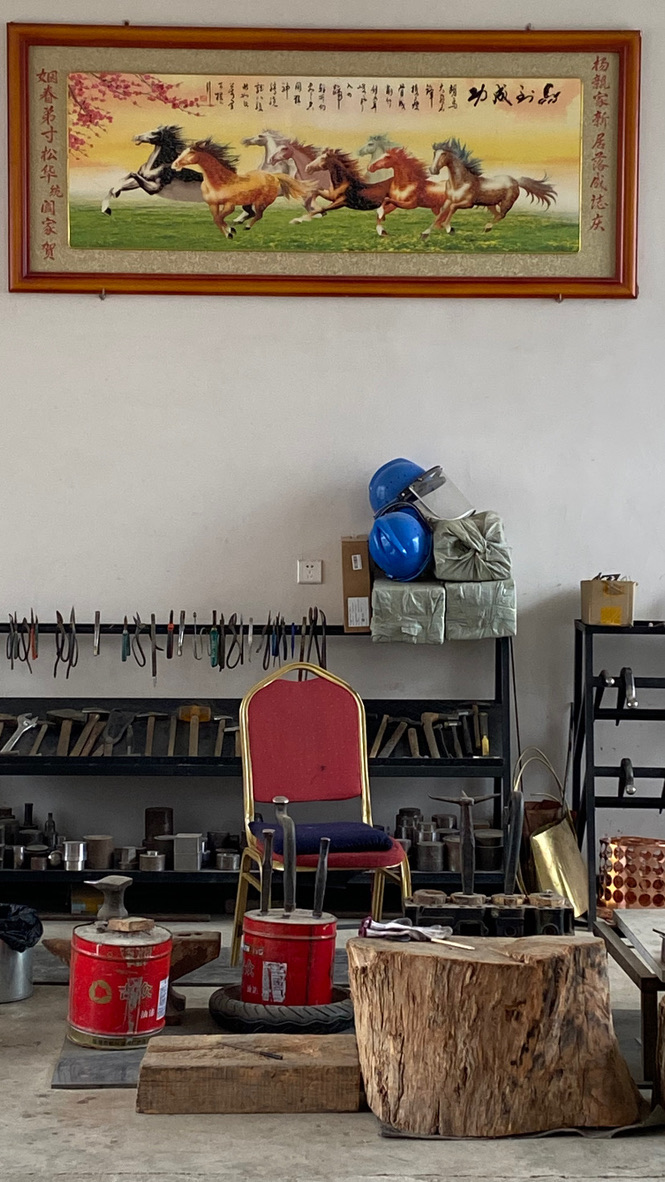
I first met Wang Chao in Nanjing over 10 years ago whilst working at Nanjing University, China.
Time passed, Covid came and went, and we had talked for many years about running a teapot workshop. Last year was impossible; however, we both made time and space in August 2025. Chao and his wife Judy worked tirelessly to make the New Teapot Project happen.
Starting in Mode Space just outside Shanghai, we then travelled with 13 students to Heqing, Yunnan Province, to rent a workshop space to reimagine the teapot! In 7 days, 13 teapots were made.
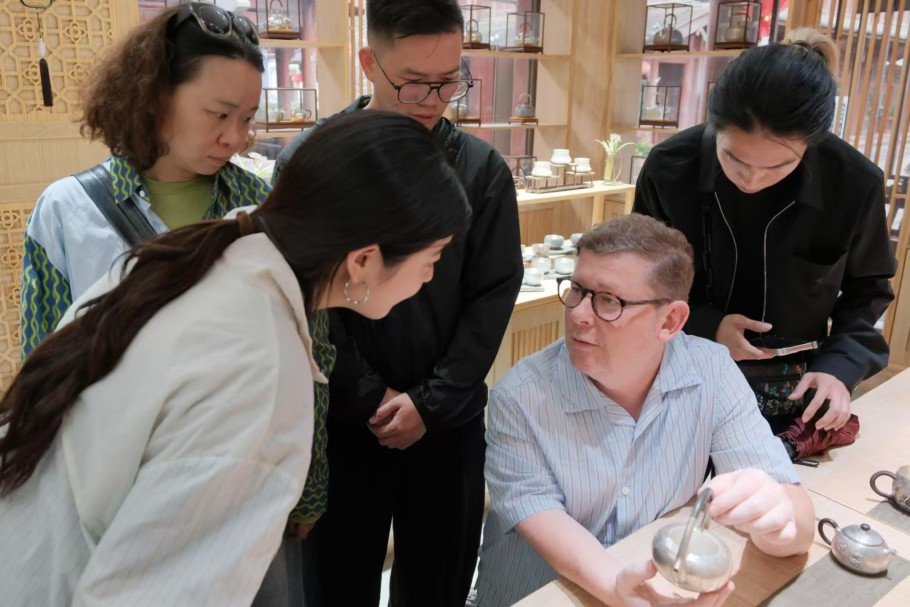
I have, over the past 20 years, travelled back and forth to China: Wuhan, Beijing, Hangzhou, Guangzhou, Shanghai & more. Thinking back, my first invitation was to Wuhan and arranged through some master’s students I was tutoring at Birmingham School of Jewellery.
Workshops were created individually depending on time: from 2 days to three weeks. From 1 student up to 45 (which was crazy!) And my lasting memories of teaching in China were the students’ desire to work, to learn and to challenge themselves. Ambition is strong, and the desire to succeed impressive.
I thoroughly enjoy this level of engagement, and one reflection on this project was that all students were in the workshop and working before Chao and I arrived at 9.30 am.
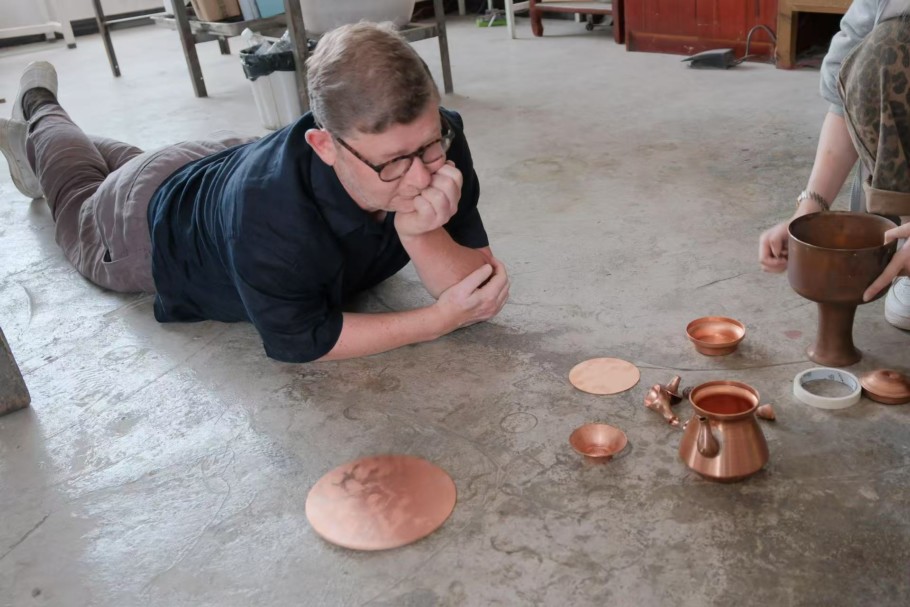
The brief was simple: Make a teapot in 7 days. In Heqing, a town in Yunnan Province known for making silver teapots, we had the luxury of being able to use factories and shops to buy parts or services that we could literally ‘collage’ pots together with. We used local spinners, a laser cutter, and a carpenter who rustled up a few handles. It was incredible to see companies being so willing to let students drop in at a minute’s notice to assist them in figuring out what parts they needed.
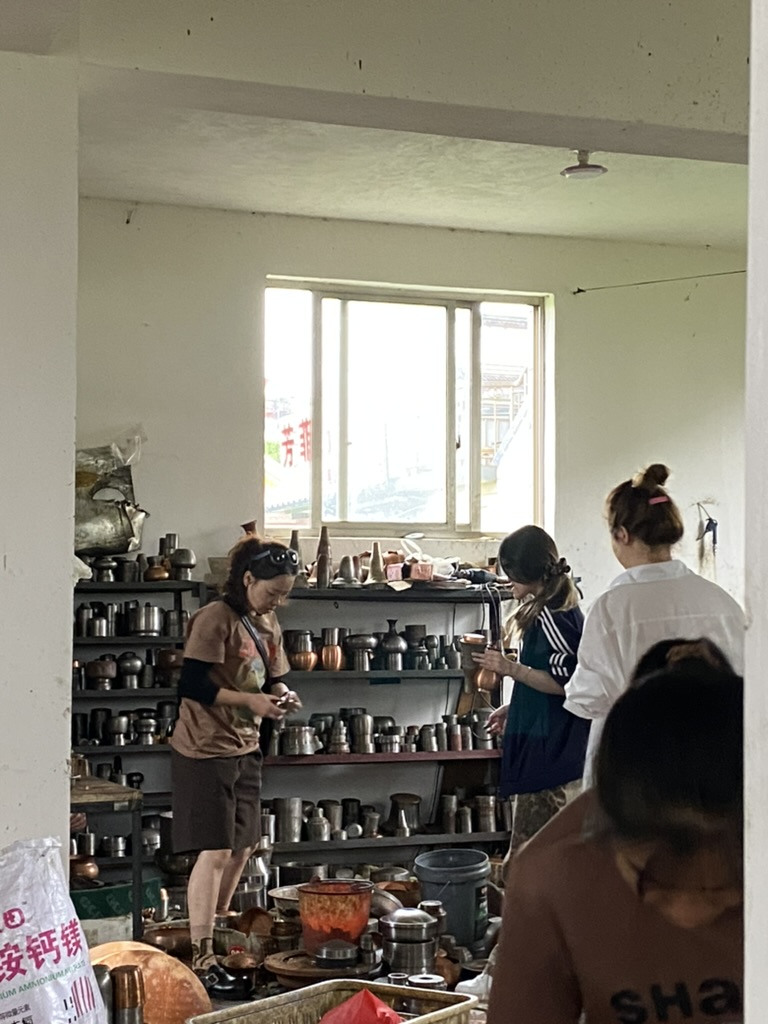
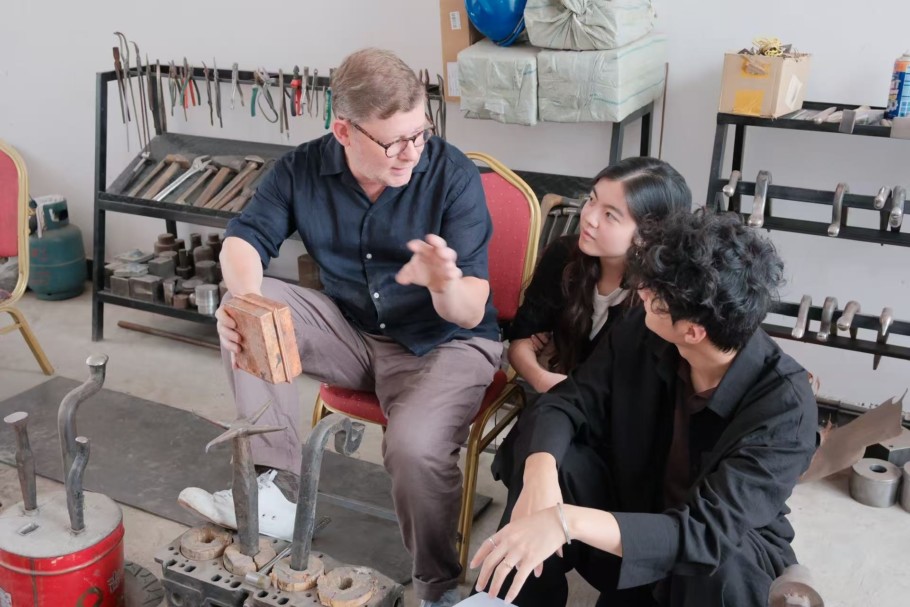
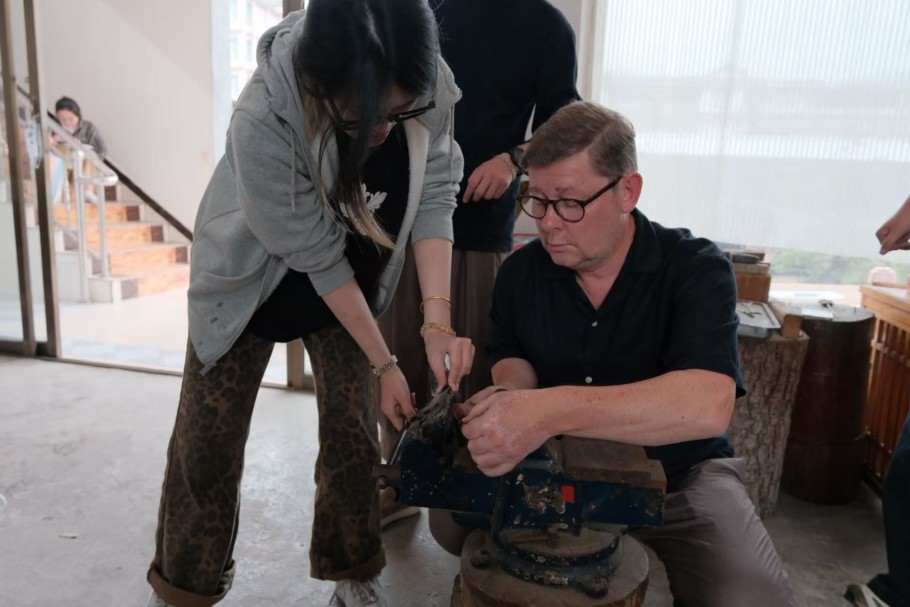
Through thinking about the tradition of the teapot, tea rituals and culture, we set about questioning why they are the scale/form they are, how we handle them, and the tricky function of pouring.
Through discussion, storytelling and considering our own relationship to tea, it was fascinating and curious how conversations were shared and absorbed. Much learning to make tea is passed from generation to generation.
Many students struggled at first; however, over time and with some homework, they really focused on different ways of approaching their own briefs, and we moved through prototypes, models, drawings and believing in individual thinking. We developed fast making and fast thinking. No space for overthinking, however, building trust in taking the risk to move forward in making.
If there were any significant errors, we could simply jump on a bike and dash to a supplier and stock up on new components.
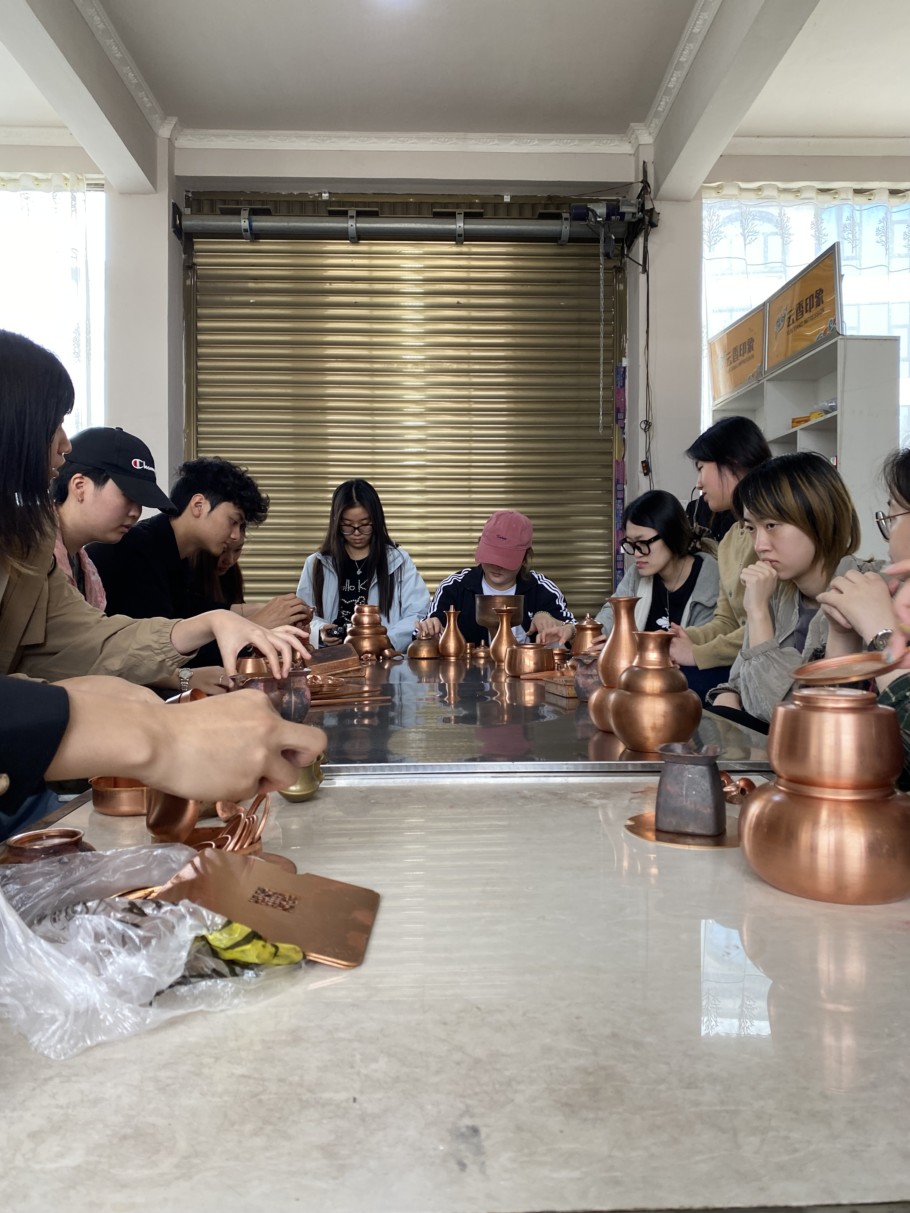
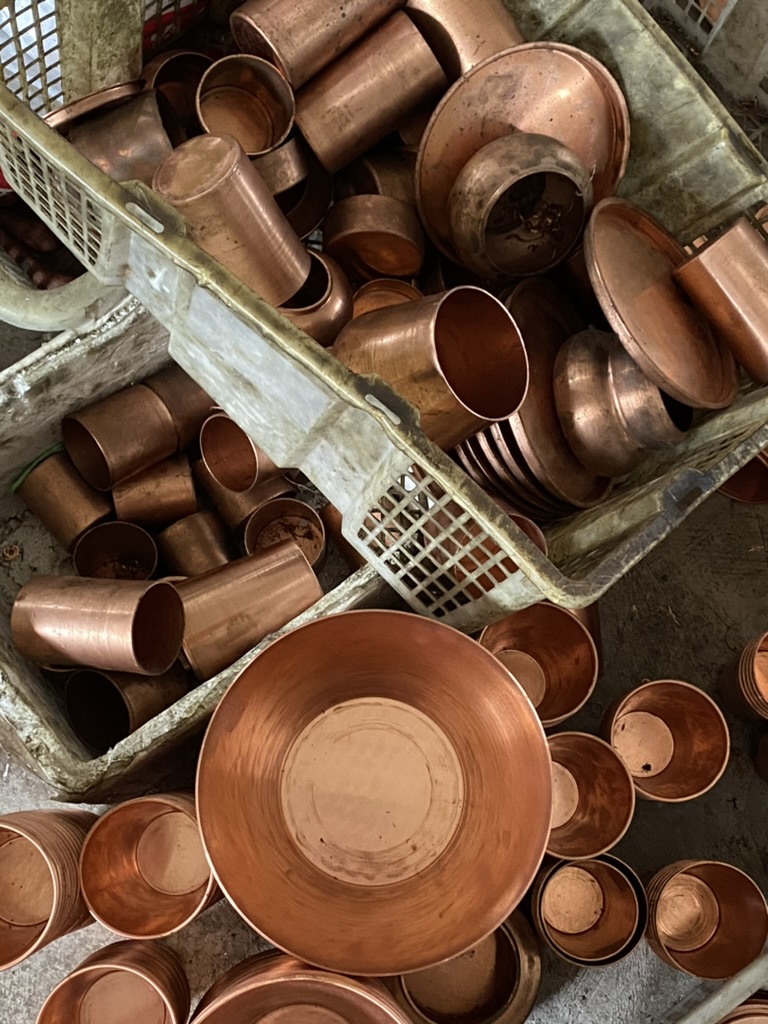
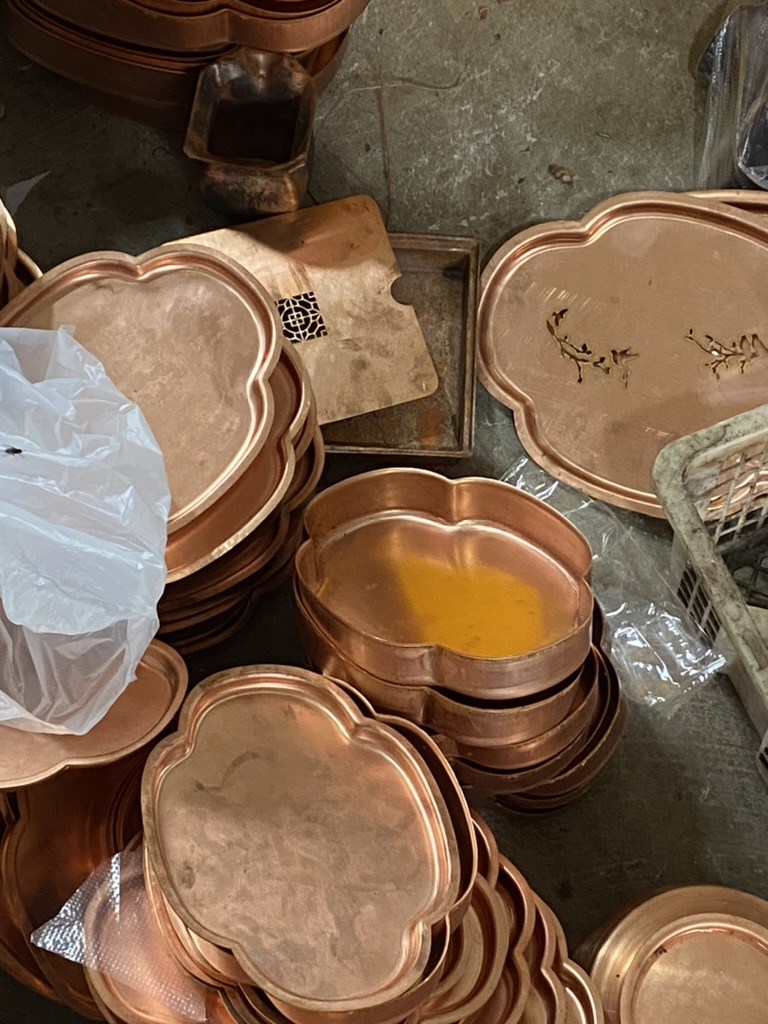
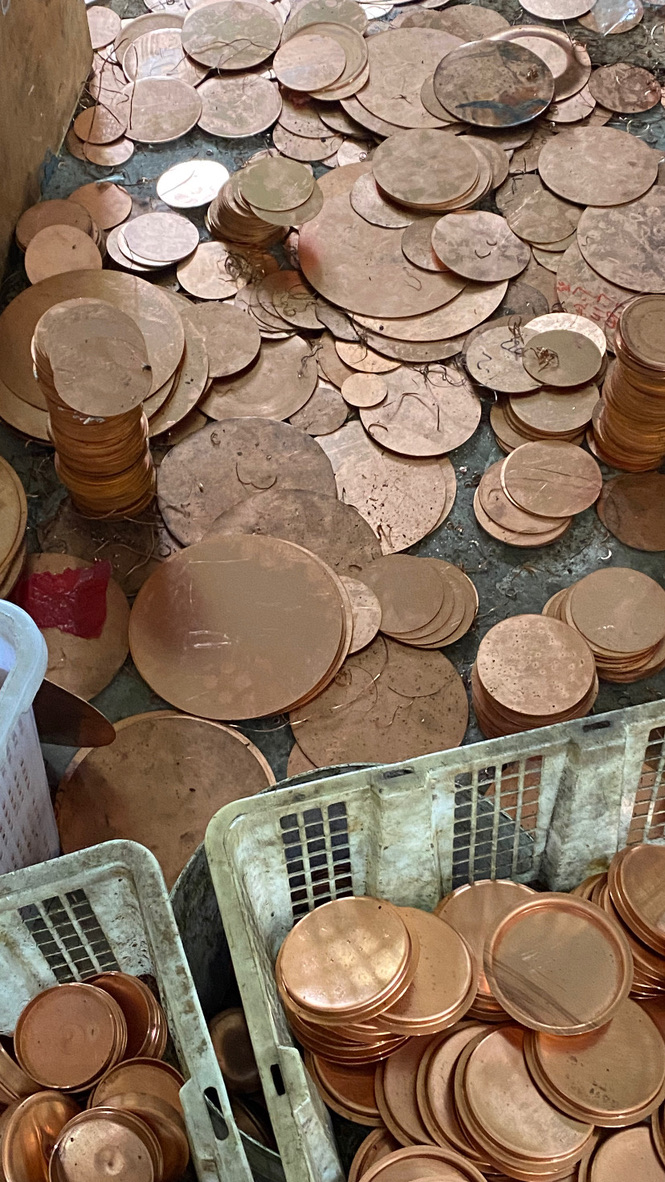
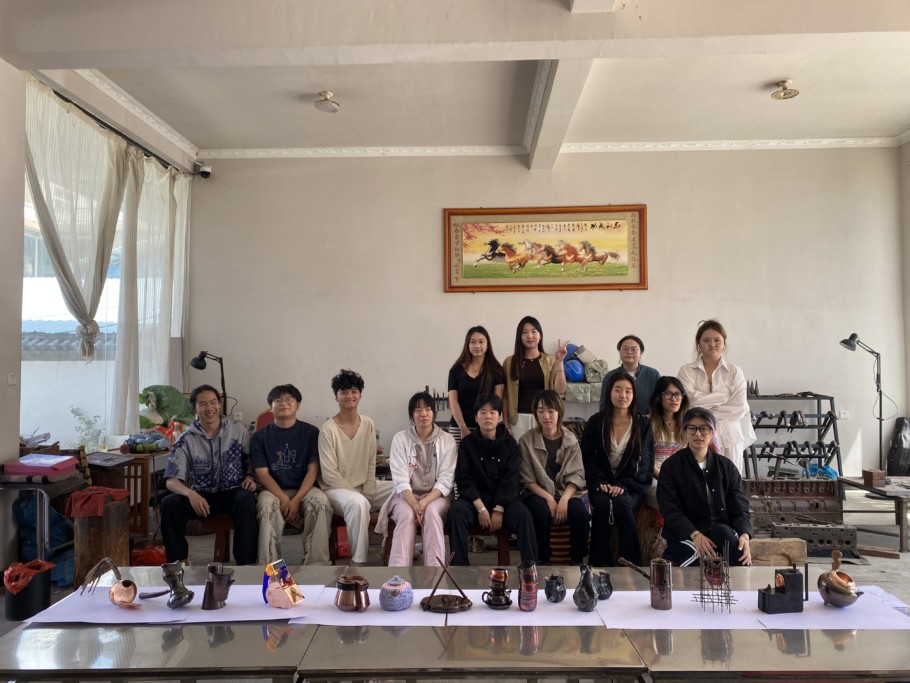
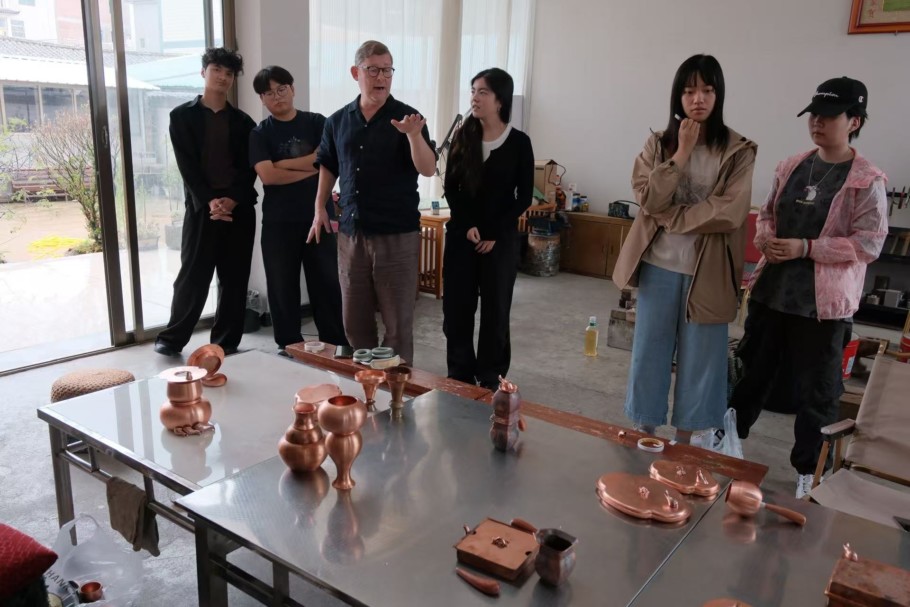
Through taking tours of local silversmithing workshops and shops, engaging with factories and suppliers, we were able to develop and make a teapot each. Students were motivated to bring their ideas to reality and truly begin the journey to question what we make and why.
Every teapot was unique and challenged the traditional pots that could be seen in every outlet in Heqing.
It was an honour to be surrounded by such energy, dedication and absolute joy that many students wanted to continue the project further after I had left, to return to the UK. Workshops are exhausting because of the energy required; however, the energy I received from the workshop was greatly appreciated.
I want to thank Mode Space for the time, effort, and dedication in making this happen. It was a privilege to be part of this project, and I thank everyone who took part. Hopefully, there is an exhibition coming soon (2026, Shanghai)
If you wish to discuss the types of workshops I can offer you, from 1 day to three weeks. Please do contact me as I would be delighted to talk it through.